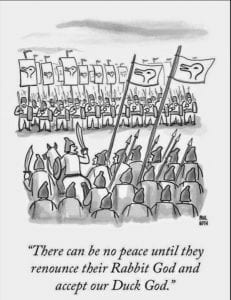I gave a talk to Cornell University’s Moral Psychology Brown Bag series on September 21st, 2021. Here are my slides. I’ll post the video once it’s available.
Category: Diversity Equity Inclusion
One of my EMBA students, Aranthan (AJ) Jones, kindly gave me permission to publish this post, which he submitted to one of the discussion forums in my managerial accounting course. He poses the question in the title. I’ll write a separate post soon offering some possible answers, but for now just let you read the background that makes the question a very good one.
‘George Serafeim, an Accounting professor at HBS, has been leading a very interesting and impressive project, called the Impact-Weighted Accounts (IWA) Project:
The mission of the Impact-Weighted Accounts Project is to drive the creation of financial accounts that reflect a company’s financial, social, and environmental performance. Our ambition is to create accounting statements that transparently capture external impacts in a way that drives investor and managerial decision making.
In this post, I’ll give some basics of their approach, and highlight how it relates to moral accounting. The upshot is that the impact accounting project proposes a particular improvement to reporting on how businesses affect the world; moral accounting provides a framework for resolving disagreements about what impacts matter, and how to integrate their reports into accountability systems. There will be a lot of such disagreements, and they are going to be distinctly moral disputes.
Basecamp implodes as employees flee company, including senior staff
After a controversial blog post in which CEO Jason Fried outlined Basecamp’s new philosophy that prohibited, among other things, “societal and political discussions” on internal forums, company co-founder David Heinemeier Hansson said the company would offer generous severance packages to anyone who disagreed with the new stance. On Friday, it appears a large number of Basecamp employees are taking Hansson up on his offer: according to The Verge contributing editor Casey Newton’s sources, roughly a third of the company’s 57 employees accepted buyouts today. As of Friday afternoon, 18 people had tweeted they were planning to leave.
As I wrote in a prior post, speech is rarely free. It costs time, so when time is short, people impose limits on what can be said: speakers need to comply with a LAAP. Just like GAAP restricts what you can say in financial statements, a LAAP restricts what you can say in some particular venue (the L is for Local).
The US Federal Trade Commission just issued guidance on “Aiming for truth, fairness, and equity in your company’s use of AI“. The title of this post comes from the kicker at the end of their announcement:

It’s become pretty standard for blogs to start every post with a picture at the top. I’ve decided to do that only rarely on this site (this post being my first exception). The reason is quite simple–good images are typically too powerful and unruly for productive discussions of moral accounting.
Last week HBS Professor Mihir Desai led a workshop on his challenges teaching a case he has written, The Tulsa Massacre and the Call for Reparations. It starts like this:
Star Trek and moral accounting have a natural affinity, because both are so aspirational. Star Trek’s Federation expresses all sort of aspirations, from lauding knowledge and wisdom to eradicating poverty and war, but the Prime Directive overrides all of them–non-interference with outside cultures. This makes the Borg Collective the perfect Star Trek villain, because their entire purpose to to assimilate all cultures into its own.
Moral accounting has its own version of the Prime Directive: accountants are not permitted to impose their own morality on a society. Instead, they must accept that society’s definition of morality, and then evaluate whether people are being held morally accountable in a moral way according to that definition.
[Note: This post is targeted largely at moral philosophers and those interested in issues of DEI (diversity, equity and inclusion). If you are new to moral accounting, take a look at this post first.]
When is it moral for a group of people, like “Apple, Inc.” to be held accountable for the group’s performance? When can one person be held accountable for the behavior of a group. Can we hold Apple’s CEO accountable for what the company does? What about the janitor working at an Apple store? What about a group like “Everyone who owns an iPhone”? Can we hold one iPhone owner accountable for what another did?
When is it appropriate to hold two people accountable differently because they are members of different groups? Here, instead of the feature “owns an iPhone”, let’s define the groups by something more personal–race, ethnicity, religion, sex, height, age, and so on.
Moral accounting offers a way of answering these questions, but as I’ll show in this post, the answers don’t sweep away all forms of discrimination–primarily because it requires accountants to defer to society on crucial matters, like who has which assets and obligations.
I’ve been arguing in my paper and recent talk about the advantages of focusing on accountability systems, rather than on character. Some, like philosopher John Doris, argue that character doesn’t exist. But if it does, it is by definition too consistent and stable to be changed much–certainly compared to accountability systems. In addition, I’ve argued a more psychological point–that people will be less defensive when accountability failures are viewed as driven by systems rather than character.
Enter Dr. Ed Livingston, deputy editor of the Journal of the American Medical Association (JAMA), to make me doubt myself by misunderstanding the term “structural racism” in a crucial way, and also suggest an opportunity for experimental research. Per the NYTimes: